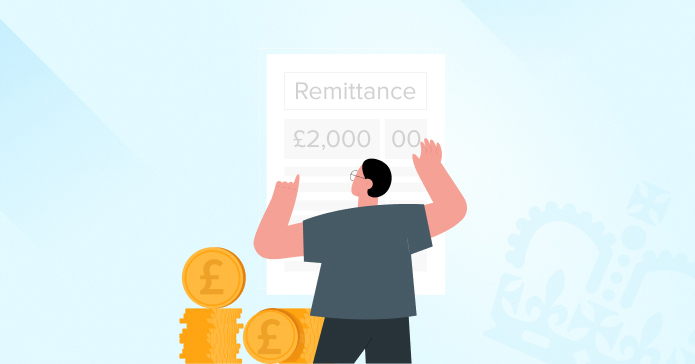As an entrepreneur or small business owner, staying on top of tax obligations and maintaining accurate financial records is crucial. One important document you may receive from HM Revenue & Customs (HMRC) is the remittance advice. In this blog post, we'll delve into what HMRC remittance advice is, why it's important, and how you can effectively manage and respond to it.
What is HMRC Remittance Advice?
HMRC remittance advice is a document provided by HMRC that accompanies tax payments made by individuals or businesses. It contains essential information related to the payment, including the amount paid, the tax period it covers, and any reference numbers or tax codes associated with the payment. This advice acts as proof of payment and is an important record-keeping tool for tax purposes.
Interpreting HMRC Remittance Advice
Properly interpreting the information provided on HMRC remittance advice is crucial for maintaining accurate financial records and ensuring compliance with tax regulations. Here are some key elements to look out for:
1. Payment Details
Review the payment amount, the tax period covered, and any reference numbers or codes associated with the payment. This information helps ensure that the payment is correctly allocated to the appropriate tax liability.
2. Tax Liability Breakdown
HMRC remittance advice may provide a breakdown of the tax liability, specifying the amounts allocated to different tax types such as income tax, national insurance contributions, or value-added tax (VAT). Understanding how your payment is allocated can help you better plan and manage your finances.
3. Due Dates
Note any due dates or deadlines mentioned on the remittance advice. Prompt payment is essential to avoid penalties and interest charges.
Best Practices for Managing HMRC Remittance Advice
To effectively manage and respond to HMRC remittance advice, consider the following best practices:
1. Keep Records
Maintain a systematic record-keeping system to store all remittance advice documents received from HMRC. This ensures easy access for future reference and helps you stay organized during tax audits or assessments.
2. Review for Accuracy
Carefully review the remittance advice for accuracy, ensuring that the payment details match your records. If you identify any discrepancies, promptly contact HMRC for clarification.
3. Maintain Compliance
Use remittance advice as an opportunity to review your overall tax compliance. Regularly reconcile your payments with your tax liabilities to ensure you are meeting your obligations and to identify any potential issues.
4. Utilize for Financial Tracking and Planning
Leverage the information provided on remittance advice for financial tracking and business planning purposes. Analyse payment patterns, identify areas for improvement and use the data to make informed decisions for your business.
The Role of HMRC Remittance Advice in Compliance
HMRC remittance advice plays a vital role in maintaining compliance with UK tax regulations. By carefully reviewing and responding to the advice, you demonstrate your commitment to meeting your tax obligations. It also serves as evidence of payment, should HMRC request verification in the future.
Conclusion
As an entrepreneur or small business owner, understanding and effectively managing HMRC remittance advice is crucial for maintaining accurate financial records, complying with tax regulations, and making informed decisions for your business. Take the time to review and interpret the information provided on the advice, keep meticulous records, and utilize the data to improve your financial tracking and planning.
Remember, remittance advice is not just a document; it's a valuable tool that can help you stay on top of your tax obligations and foster financial success. Embrace its importance, and leverage it to enhance your business's overall financial management. Stay proactive, stay compliant, and thrive as an entrepreneur in the ever-changing landscape of UK tax regulations.













